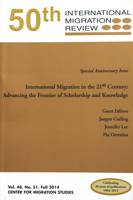This article proposes a conceptual framework for studying remittances as social transactions that can take a number of different forms. For the past three decades, the dominant framework for understanding remittance relationships has been the continuum of senders' motives from altruism to self-interest. This approach has its roots in economics and has shaped much of the quantitative research on remittances. In parallel, a growing body of ethnographic research has examined transnational money transfers with perspectives and data that differ from those of economists. The insights from these ethnographic studies are valuable, but remain fragmented and marginal in research on remittances. Two key points emerge from the ethnographic literature: Remittances are at the core of composite transactions with material, emotional, and relational elements, and there is great variation in the nature and logic of these transactions. The framework proposed here is designed to engage with both complexity and variation. It systematically draws upon a large body of ethnographic literature and introduces remittance scripts as an analytical tool.
There are two online supplements to the article: Appendix S1. A bibliography of ethnographic studies on remittances and Appendix S2. Using the notion of scripts in empirical research on remittances.
This article was published in the 50th Anniverasry Issue of the International Migration Review, a special issue outside the regular sequence of issues. The correct citation details for the article are ...(s1):S218-S262. (The system only accepts numerical data in these fields, hence the need for this manual specification)








